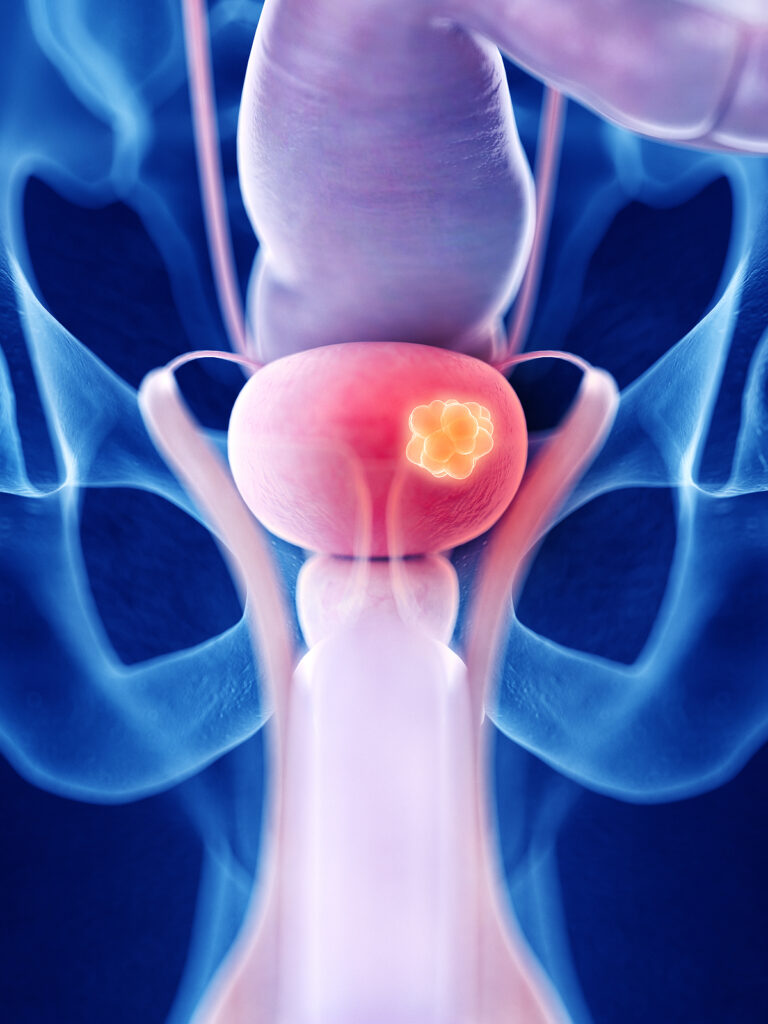By Lynda Williams, medwireNews Reporter
medwireNews: Phase 3 trial findings demonstrate a significant improvement in overall survival (OS) for patients with treatment-naïve, advanced urothelial carcinoma who receive a combination of enfortumab vedotin and pembrolizumab compared with chemotherapy.
“The treatment of locally advanced or metastatic urothelial carcinoma took not just a step forward but rather a leap forward on the basis of the results of the EV-302 trial”, said Günter Niegisch (Heinrich Heine University Dusseldorf, Germany) in an editorial accompanying the research in The New England Journal of Medicine.
“Given these data, enfortumab vedotin in combination with pembrolizumab is the new standard-care regimen against which future trials must be compared”, he commented.
Progression-free survival (PFS) was a median 12.5 months for the 442 patients with locally advanced or metastatic urothelial carcinoma who were randomly assigned to receive first-line enfortumab vedotin 1.25 mg/kg on days 1 and 8 plus pembrolizumab 200 mg on day 1 of each 3-week cycle.
This was significantly longer than the median PFS of 6.3 months achieved by the 444 patients who instead received a standard regimen of gemcitabine plus cisplatin or carboplatin, giving a hazard ratio (HR) for progression or death of 0.45 in favour of the antibody–drug conjugate and PD-1 inhibitor combination.
OS was also significantly better with enfortumab vedotin plus pembrolizumab than chemotherapy, with median durations of 31.5 and 16.1 months, respectively, and a HR for death of 0.47, report Thomas Powles (Barts Cancer Institute Biomedical Research Centre, Queen Mary University of London, UK) and co-authors.
The 12-month OS rate in the enfortumab vedotin plus pembrolizumab arm was estimated to be 78.2% versus 61.4% with chemotherapy, and both the PFS and OS benefits were “consistent” across the prespecified treatment subgroups, including those grouped by liver metastases, cisplatin eligibility and PD-L1 expression, they say.
Patients given enfortumab vedotin plus pembrolizumab had a longer treatment duration than those given chemotherapy (median 9.4 vs 4.1 months) and received twice as many treatment cycles (median 12 vs 6).
Nevertheless, the enfortumab vedotin plus pembrolizumab group was less likely than the controls to experience grade 3 or more severe treatment-related adverse events (TRAEs; 55.9 vs 69.5%), the researchers say.
The most common TRAEs at this grade with enfortumab vedotin plus pembrolizumab were maculopapular rash (7.7%), hyperglycaemia (5.0%) and neutropenia (4.8%), versus anaemia (31.4%), neutropenia (30.0%) and thrombocytopenia (19.4%) with chemotherapy.
Four TRAE deaths were reported with enfortumab vedotin plus pembrolizumab, from multiple organ dysfunction syndrome, immune-mediated lung disease, diarrhoea and asthenia. Four patients given chemotherapy died from sepsis, febrile neutropenia, neutropenic sepsis and myocardial infarction.
“The EV-302 trial showed a significant and clinically meaningful benefit of enfortumab vedotin and pembrolizumab over chemotherapy with respect to progression-free survival and overall survival in patients with previously untreated locally advanced or metastatic urothelial carcinoma”, summarise Powles and co-workers.
News stories are provided by medwireNews, which is an independent medical news service provided by Springer Healthcare Ltd. © 2024 Springer Healthcare Ltd, part of the Springer Nature Group
New Engl J Med 2024; doi:10.1056/NEJMoa2312117

